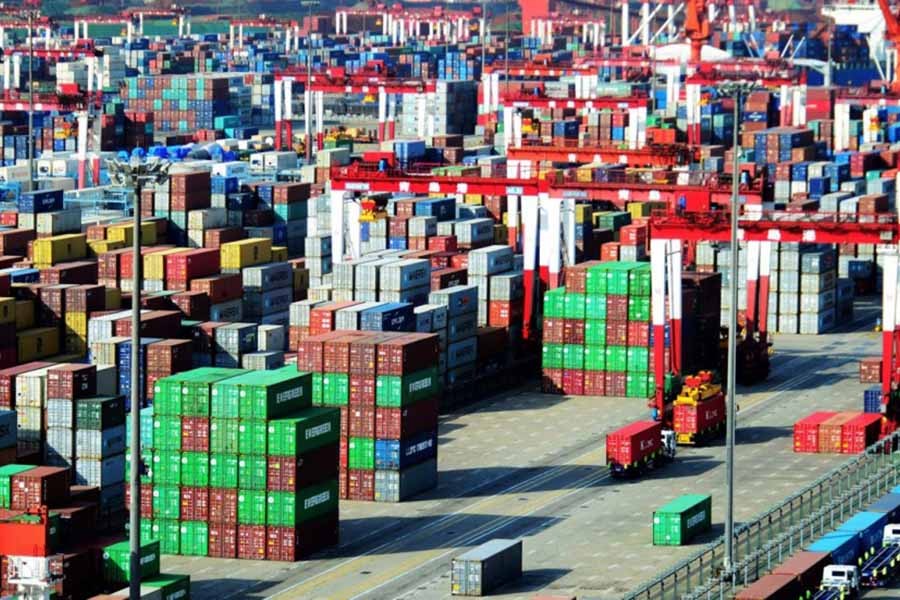It wasn't a surprise when the European Union (EU) complained about high-value fixation for EU imports to Bangladesh. It tells on competitiveness and makes imports pricier. And while the National Board of Revenue (NBR) chief Mosharraf Hossain has said he would look at the issue, this question of tariff value is vexing but nothing new. Bangladesh has suffered more than its share at the opposite end.
The European Union has bruised our exports by imposing investment conditions on account of green factories and increased workforce facilities. Those who have made investments have seen little joy in any upward swing of unit prices. In short, businesses are expected to fork out extra cost while keeping unit product prices low. That's an unreasonable proposition. Just as unreasonable is the tariff values that were imposed due to under-invoicing in a nutshell. The usual propensity to avoid customs duties was looked to be tackled by tariffs that the EU claim are leaving their businesses uncompetitive. There's a yes and a no scenario here.
Europe usually works with Preferential Tariffs for Bangladesh, a system Commerce Minister Tofail Ahmed has urged them to continue extending. At stake is a $ 23 billion plus export target. On the contrary, imports are only around $ 3.2 billion in the last fiscal that is certainly lopsided. However, the economies are by no stretch of the imagination like to like. But because Bangladesh products are cheaper resourced margins for Euro businesses are high. Except for like to like items the opposite is not true from a pricing perspective but make sense when the tax element rolls in. Luxury items have to be expensive in a country where the have nots are concerned. Import substitution has come a long way but we're some distance away from optimisation.
Tariff rules can be arbitrarily high at times but as always these are never synchronised with real time prices that our trade missions should be looking at regularly. In the connected world these should be much easier to resolve but almost always leave a bone of contention between suppliers and the taxman. Substitution-products deserve preferential treatment but so does products that are urgent but not produced locally. The looseness with which physicians prescribe foreign-produced medicine with no questions about how these drugs are available in the first place is a moot question. According to some sources, import substitutes haven't been fully acceptable to physicians and that's where the process gets hamstrung. The patients look at doctors to guide them in this matter.
Countries providing preferential treatment to Bangladeshi produce have a point about reciprocal arrangements. But costing and pricing have to be just as fair.


